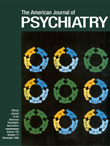Use of Psychotropic Medications During Lactation
To the Editor: With their elegant study of sertraline and desmethylsertraline levels in maternal breast milk and the serum of nursing infants, Zachary N. Stowe, M.D., and colleagues have made a major contribution to the debate over the use of psychotropic medications during lactation (1). However, although this and several smaller studies have demonstrated minuscule or unmeasurable levels of various antidepressants in breast-fed infants, there remain understandable concerns about prescribing such medications to lactating mothers. Given the important role of serotonin in the modulation of synaptogenesis in the neonatal period (2), such concerns might apply particularly to the use of selective serotonin reuptake inhibitors (SSRIs).
Most studies have concentrated on measuring the serum levels of antidepressants in infants, rather than their effects. A recent study, however, found no discernible effect of maternal sertraline treatment on the activity of the platelet serotonin transporter in four breast-fed infants (3). These represent the first data on the potential biological effects of maternal antidepressant treatment on infants.
The benefits of breast-feeding need no repeating (4), but an issue often overlooked is the risk to the infant associated with unresolved maternal depression. Children of mothers with untreated postpartum depression have reduced growth rates, delayed motor development, and lower IQs than children of mothers whose depression has been successfully treated (5, 6). In addition, we must consider the potentially devastating effects upon a child of maternal psychiatric hospitalization or suicide.
It is clear that more data are needed, particularly from longitudinal developmental studies, before we can be sure that infant exposure to SSRIs through breast milk is harmless. Nonetheless, given the enormous benefits associated with breast-feeding, the significant risks posed by untreated maternal depression, the mounting evidence that SSRIs are not found in significant quantities in infant plasma, and early data suggesting they do not produce measurable changes in infant serotonin transport, we feel that all women suffering from significant postpartum depression should be offered appropriate antidepressant treatment unless there is a clear contraindication in an individual case.
1. Stowe ZN, Owens MJ, Landry JC, Kilts CD, Ely T, Llewellyn A, Nemeroff CB: Sertraline and desmethylsertraline in human breast milk and nursing infants. Am J Psychiatry 1997; 154:1255–1260Link, Google Scholar
2. Lauder JM: Neurotransmitters as growth regulatory signals. Trends Neurosci 1996; 16:233–240Crossref, Google Scholar
3. Epperson CN, Anderson GM, McDougle CJ: Sertraline and breast-feeding. N Engl J Med 1997; 336:1189–1190Crossref, Medline, Google Scholar
4. Nutrition Committee of the Canadian Paediatric Society and the Committee on Nutrition of the American Academy of Pediatrics: Breast feeding. Pediatrics 1978; 62:591–601Medline, Google Scholar
5. Cogill SR, Caplan Hl, Alexandra H: Impact of maternal postnatal depression on cognitive development of young children. BMJ 1986; 292:1165–1167Crossref, Medline, Google Scholar
6. Field T: Infants of depressed mothers. Infant Behavior and Development 1995; 18:1–13Crossref, Google Scholar



